John Chau Martyred On North Sentinel Island
India
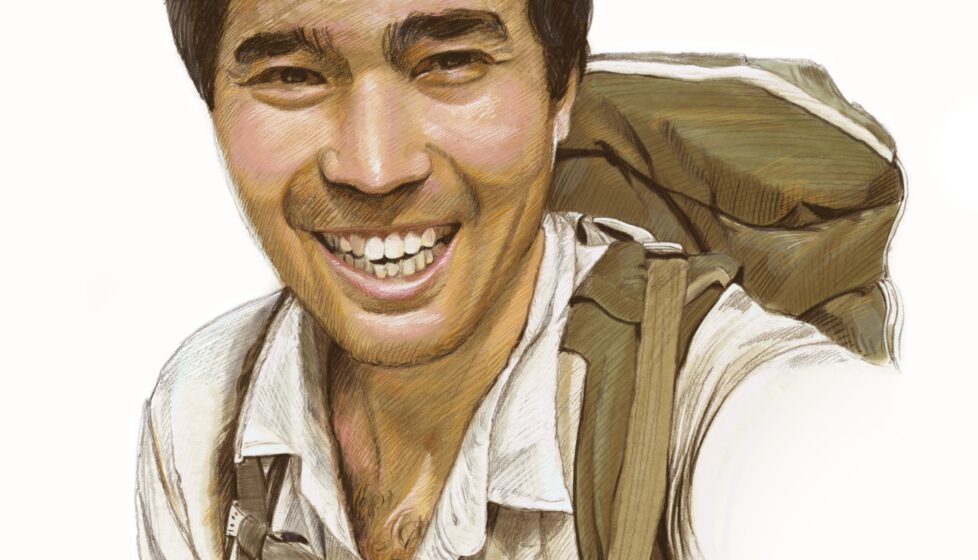
If all had gone according to John Allen Chau’s plan, we would never have known his name. He intended to remain invisible to the world whether he lived or died, caring only to be seen by the one who told His followers to “Go into all the world and proclaim the gospel to the whole creation.”
But instead, in November 2018, news outlets around the world were running the story of a 26-year-old American man who had been killed trying to make contact with a remote tribe on North Sentinel Island, a tiny speck in the Bay of Bengal between India and Southeast Asia. Many news reports and opinion pieces implied that John had been foolish to contact a people group known to be violent toward outsiders. What they didn’t know was that John had prepared for years to reach the Sentinelese with the Good News of Jesus Christ.
John chau’s Life of Preparation
John spent almost a decade preparing to take the gospel to the Sentinelese, one of the last uncontacted people groups. His journey began in 2008, the year he turned 17, when he became what he described as “an apprentice to Jesus.”
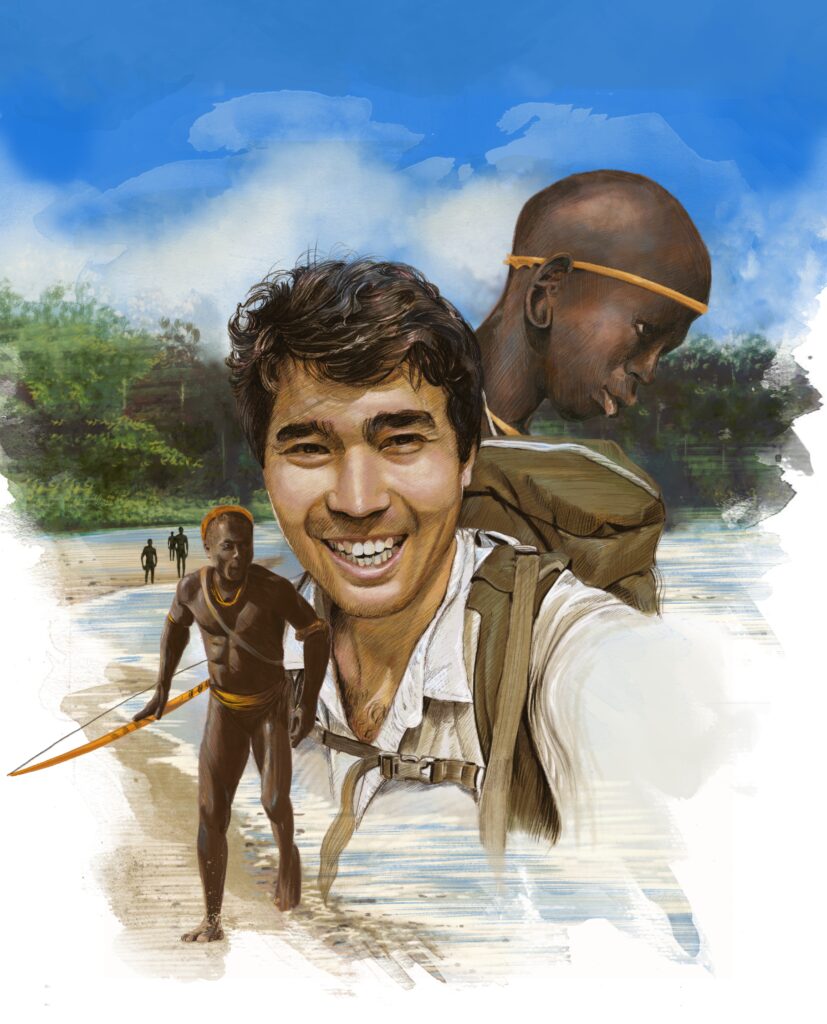
After taking his first missions trip the following year, he began to pray about spending his life serving as a missionary. “I know that God used that time to mark my life,” he said later. In his prayers, John asked God where He wanted him to go, echoing Isaiah’s affirmation — “Here I am! Send me.”
Soon after making that prayerful commitment, John found information online about the Sentinelese people, who live on an isolated island and have never heard the gospel. He sensed that God was calling him to go to North Sentinel Island to share God’s love with them.
“Once I said yes to Jesus,” he said in a video for a church that supported his work, “I was committed. I was all in.”
Every decision John made for the next nine years was in preparation for going to North Sentinel Island, living among the Sentinelese and sharing the gospel with them. “He had conditioned his body, his mind, his spirit,” said a former representative from the student missions office at Oral Roberts University, the school John attended in Tulsa, Oklahoma. “He was one of the most prepared men I’ve ever met.”

Knowing he wouldn’t have hot water on the island, John took cold showers to help his body adapt. And since little is known about the Sentinelese language, he took a linguistics course through a branch of Wycliffe Bible Translators in hope it would help him communicate with the islanders. In addition, he undertook medical training and became certified as a wilderness EMT (emergency medical technician) so he could provide the Sentinelese with basic health care. He was vaccinated against all manner of diseases, knowing their immune systems would be vulnerable to imported Western viruses, and he underwent laser eye surgery so he wouldn’t have to worry about keeping his contact lenses clean.
John was so focused on preparing to serve on the island — an aerial view of North Sentinel hung on his dorm-room wall — that he needed a reminder to keep serving in the here and now. An outreach leader at ORU challenged John not to wait, but to start immediately serving and reaching out in the name of Jesus. And John took the challenge to heart.
Because of his love for soccer, John became involved with a ministry that ran a soccer program for immigrants from Myanmar. He was not the most high-profile leader, standing in the spotlight or preaching a sermon, but his love for people and his bedrock faith began to shine through.
John arrived early and stayed late. He set up for practice, made sure things ran smoothly and then packed up the gear at the end of practice. He planned devotionals and filled in when the ministry leader was gone. And he got cleats, uniforms and other equipment for players who could not afford them, often spending his own money. “Coach Chau” became a friend, mentor and coach, taking every opportunity to point young men to Christ.
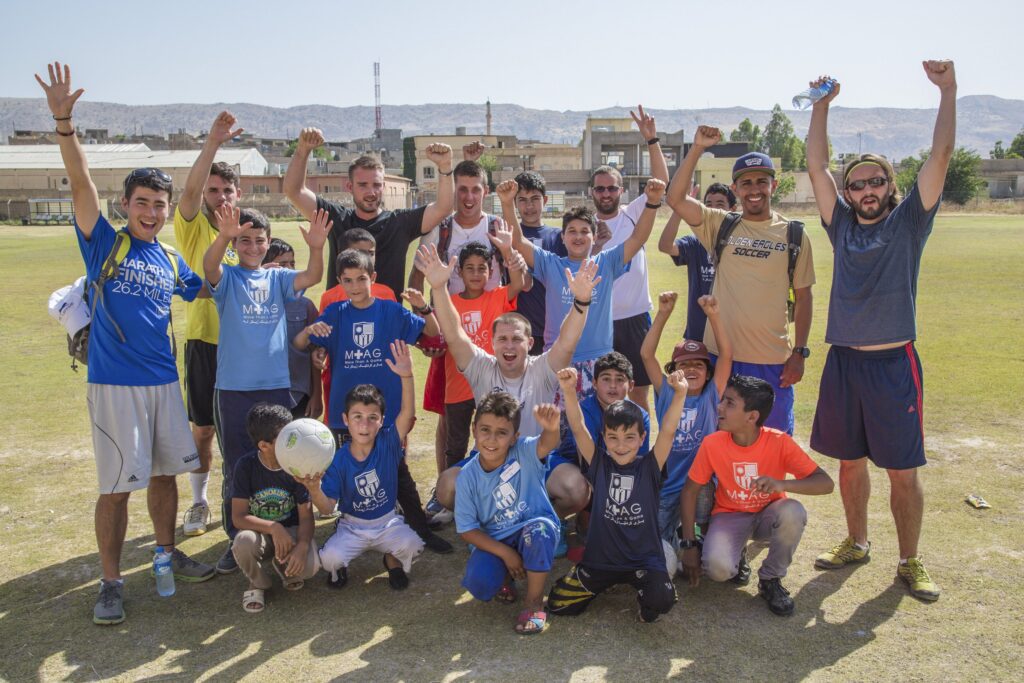
Sometimes the leader of the soccer ministry would discuss the possibility of involving more immigrants from more nations and having John work with him to grow the ministry. But John’s commitment to North Sentinel never wavered. “I hope that happens with whoever God brings to help you,” John told the leader. “But I’ll be on the island, Lord willing.”
In addition to the soccer ministry, John served with an after-school ministry in a low-income, high-crime area of Tulsa, spending hours at the ministry’s facility, interacting with students and building relationships that would allow him to point people to Jesus. Coworkers remember his willingness to help in whatever way was needed, without thought to credit or attention for his service.
“John had a unique way of making people feel seen, valued and loved,” said an ORU classmate. “After talking to John, I’d get in my car and I’d pray, ‘God, make me more like John.’”
After graduation, John got his Wilderness EMT certification and worked seasonally at Whiskeytown National Recreation Area in northern California. He shared one of his Whiskeytown adventures on his Instagram feed after being bitten by a rattlesnake, treating his own wound and hiking out to find help. The job provided free housing, and he found that he could live on $30 a week, saving the rest of his pay to fund his mission. When he wasn’t on call, he read books to help prepare him for the island — missionary biographies, linguistics books, cultural anthropology books.
When John reached out to the ministry All Nations, which had overseen one of his college mission trips, a member of the executive leadership team, Pam Arlund, took notice that John’s email was the second mention of the Sentinelese people she had seen in a week. And prior to that, she had never even heard of them. Was God at work to reach this unreached island, she wondered?
Pam invited a coworker to sit in on a call with John and help determine whether he was the right person for such a dangerous mission trip. “I would describe John as both intense and winsome,” she said. “He had an intensity for the Lord, and yet he was very comfortable to be around.”
As their conversations continued and deepened, All Nations leaders were impressed with John’s passion to do everything in his power to prepare for the mission to which he believed God had called him.
“John is actually one of the most well prepared and intentional missionaries I have ever met,” said Mary Ho, executive leader of All Nations, in a VOM Radio interview. “He would call us and say, ‘How do I prepare myself to know more about cultural anthropology?’ We would say, ‘OK, here are 10 [or] 20 books on the subject.’ He would say, ‘Oh, I have read half of them.’ Literally two weeks later he would be like, ‘I have finished reading them. What’s next?’”
john chau’s Solo Mission?
In 2015, John took the first of four scouting trips to the Andaman Islands, a union territory of India located so far east in the Bay of Bengal that it’s much closer to Bangkok than Bangalore. He was seeking a better understanding of the territory as well as confirmation that North Sentinel Island was God’s calling for him.
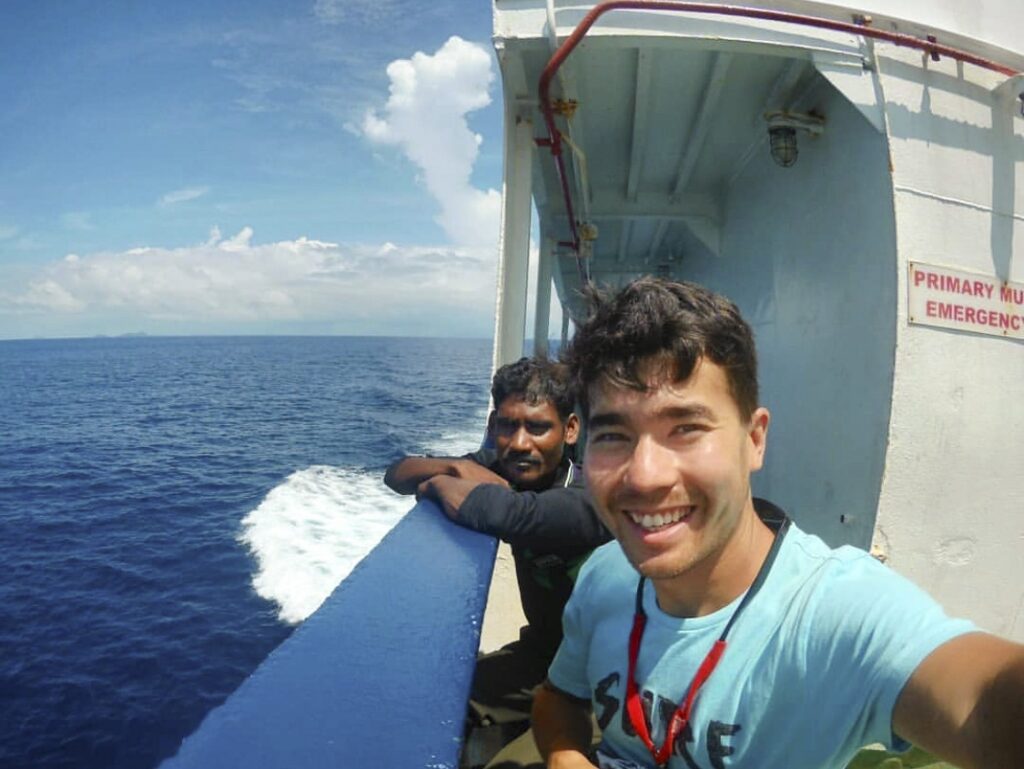
Whenever he met local Christians in the region, he would ask if anyone was going to the Sentinelese. John had told Christian friends that he was willing to serve in a support role if a missionary effort was already underway. For John, the important thing was not the messenger, but the message.
But the answer was always the same: No one was trying to reach the Sentinelese with the gospel.
In the video he made for a supporting church, John described his trip home from that first Andaman visit and his reservations about his call to North Sentinel Island. “I had been doubting a bit,” he said. “God, have You really told me to go here? Is this really where I’m supposed to be? Isn’t there someone that You’ve called that’s from here, that You’re raising up to reach this people group?”
As he flew out of Port Blair, capital of the Andaman and Nicobar Islands, John gazed out the window at the blue ocean below and saw an island came into view that he recognized immediately: It was the same island he’d stared at on his dorm-room wall all through college.
“A sense of clarity and peace came upon me,” John said later, “a sense of knowing that I’m going to be going there one day. I took that as confirmation. I’ve only had that sense of clarity and deep sense of knowing a few other times in my life, and each time I can say it was definitely God that was speaking to me.”
The confirmation of John’s call intensified his preparations. Through All Nations, he received training on church planting in different cultural settings. And he took more trips to the Andamans, where he connected with local Christians willing to help him and fishermen who would transport him to the island. But he still remained open to news of anyone else trying to reach the Sentinelese with the gospel.
All Nations introduced John to a missions worker who had helped reach another people group in the Andaman region. The two spent hours talking about what had worked and what hadn’t — what gifts might endear John to the tribesmen, the best way to approach the island and the most important supplies to take. John quickly absorbed the information, constantly weighing and praying about aspects of the previous missions effort that might transfer to his trip.
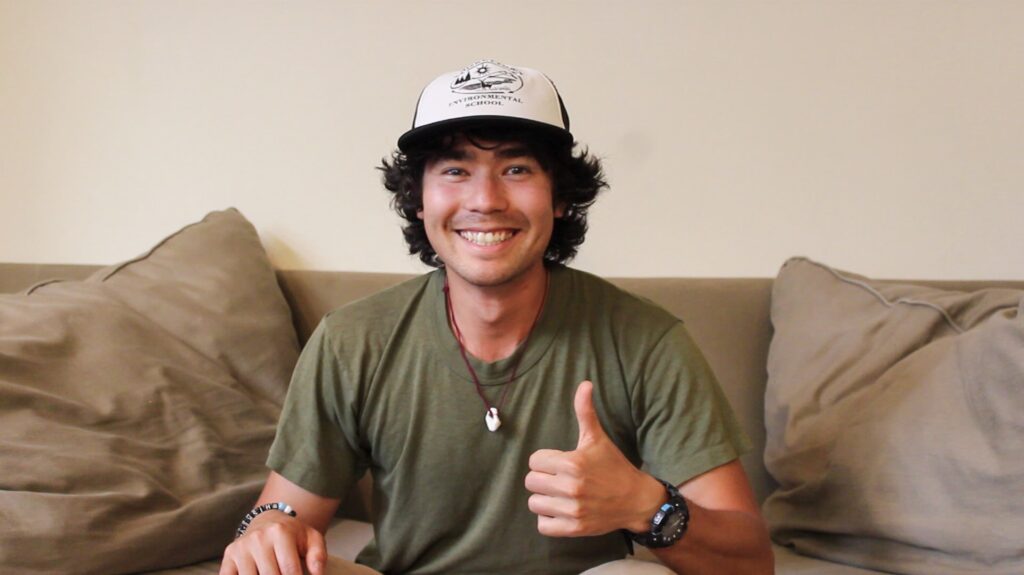
“He really was a learner,” said the former ORU missions leader. “One of the most studied, prepared, just humble [men]. He soaked it all in: ‘This group did it this way, this guy teaches this way.’ And then he would pray, process and seek wise counsel from others.”
John had a natural inclination toward planning, and it was now in full flower. He planned what to take with him, sorting and re-sorting his gear, then deciding how much would fit in the cases he planned to cache on the island before he met the islanders. He wrote plans for the first day, for his early goals and even a contingency plan in case things didn’t go well.
Plan A was to make contact with the islanders and live among them for as long as it took to learn the language and culture. Then he would tell them about the love and sacrifice of Jesus Christ. John knew it would take years and maybe decades.
His meticulous planning also included a Plan B, the possibility that tribesmen would not welcome him and might even kill him, just as they had two fishermen who drifted ashore on North Sentinel in 2006.
John was at peace either way. He had committed his life to seeing the Sentinelese people worship Jesus Christ as their Savior. Either he would live on the island as a guest and a light for Christ, or he would give his life on the island and enter eternity. Like Paul, he knew that “to live is Christ, and to die is gain.”
“John knew this could cost him everything,” said a friend and mentor, “and he knew that he might even be misunderstood by many that would judge. He didn’t want any glory, even in his death.”
“Adventure Bro”
In case the world did hear John’s name, he had done his best to protect Christian friends in the islands and make sure any publicity would not hinder further efforts to reach the Sentinelese with the gospel. To that end, he crafted an online presence that might explain his disappearance as merely a lone adventurer lost at sea.
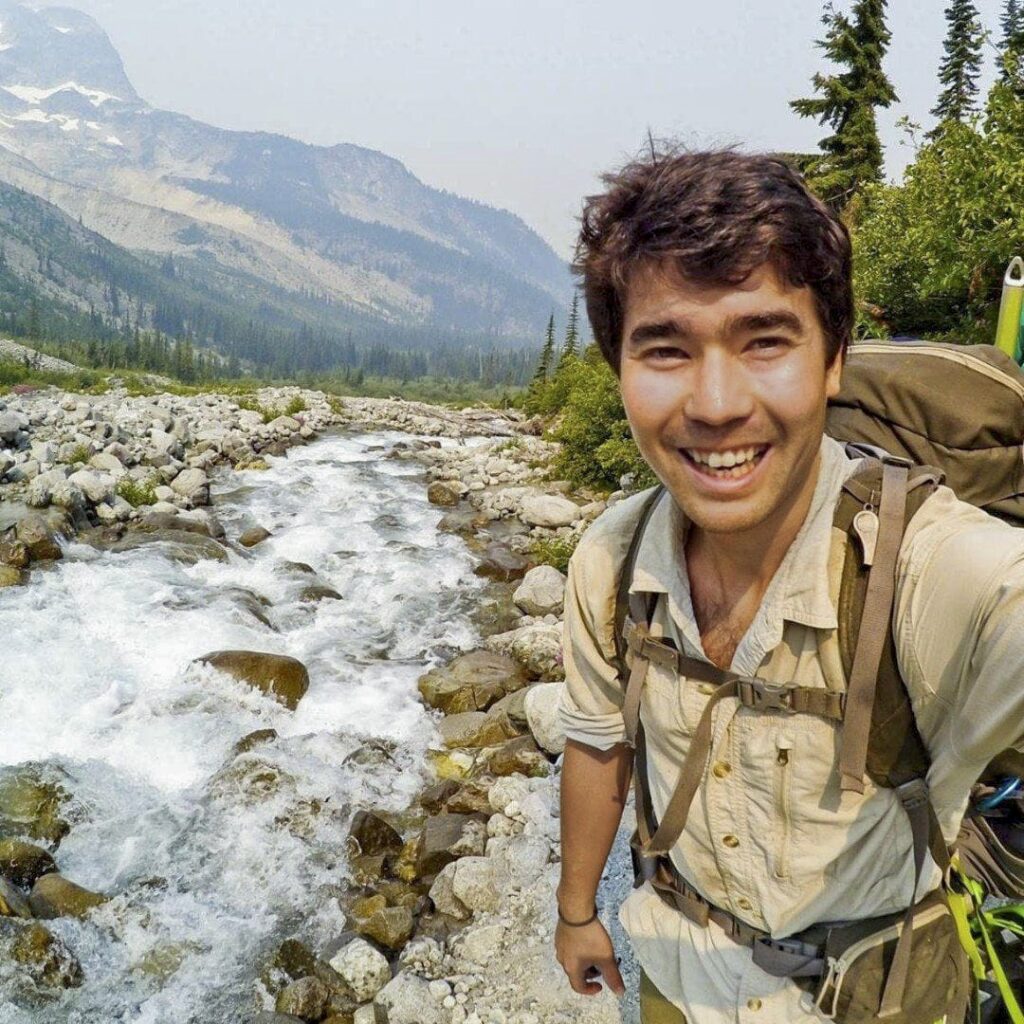
His Instagram feed is filled with adventure images from far-off places. He blogged about traveling the world, climbing, kayaking and diving with great white sharks. His adventures were even sponsored by a beef jerky company. If John’s name became known, anyone searching the images and blog posts would simply think he was an “adventure bro” who stepped too far off the beaten path and paid with his life.
He never underestimated the potential danger of his mission, but he valued the souls of the Sentinelese people more than his safety. He valued obedience to Christ over even his own life.
After John’s death, a friend posted some thoughts that John had shared before his trip. “Death is inevitable” John had said. “I can die in a car crash, [from] snake bite, [from] cancers. There are many ways we can die. I’m going to the island this November and I don’t know what is going to happen, but I’m ready. I’m ready to lay my life [down] for the gospel.”
John left a will and talked with friends about how to move forward if he were killed. He even encouraged his family to have a memorial service at ORU and to ask the university to host it for free!
“If you do a memorial service,” he wrote more seriously to his family, “let them know that … I was obedient to what God called me to do, to reach those who have not heard the gospel.”
John’s Final Prep and First Contact
As the time approached for John’s trip to the island, Mary Ho received a four-word email from another member of the All Nations executive team: “Mary, are you sure?” Her response was equally to the point, from Romans 10:14 — “How are they to hear without someone preaching?”
John spoke with only a few close friends in the days before he left, staying inside during the day to draw as little attention to himself as possible. Even as he considered final decisions and details, his friends saw a man fully living out his gifts. John took leadership in times of worship and discussion, and on one of the final nights before his departure he led a Communion service. The behind-the-scenes servant who sometimes got tongue-tied leading a devotional was now boldly leading worship, prayer and Communion. “I can’t wait,” he said at one point, “to introduce you to my friends, the North Sentinelese.”
On the afternoon of Nov. 14, before boarding a fishing boat and heading toward the island, John wrote this prayer in his journal: “Thank you, Father, for using me, for shaping me and molding me to be Your ambassador. … Holy Spirit, please open the hearts of the tribe to receive me and by receiving me, to receive You. May Your kingdom, Your rule and reign come now to North Sentinel Island. My life is in Your hands, O Father, so into Your hands I commit my spirit.”
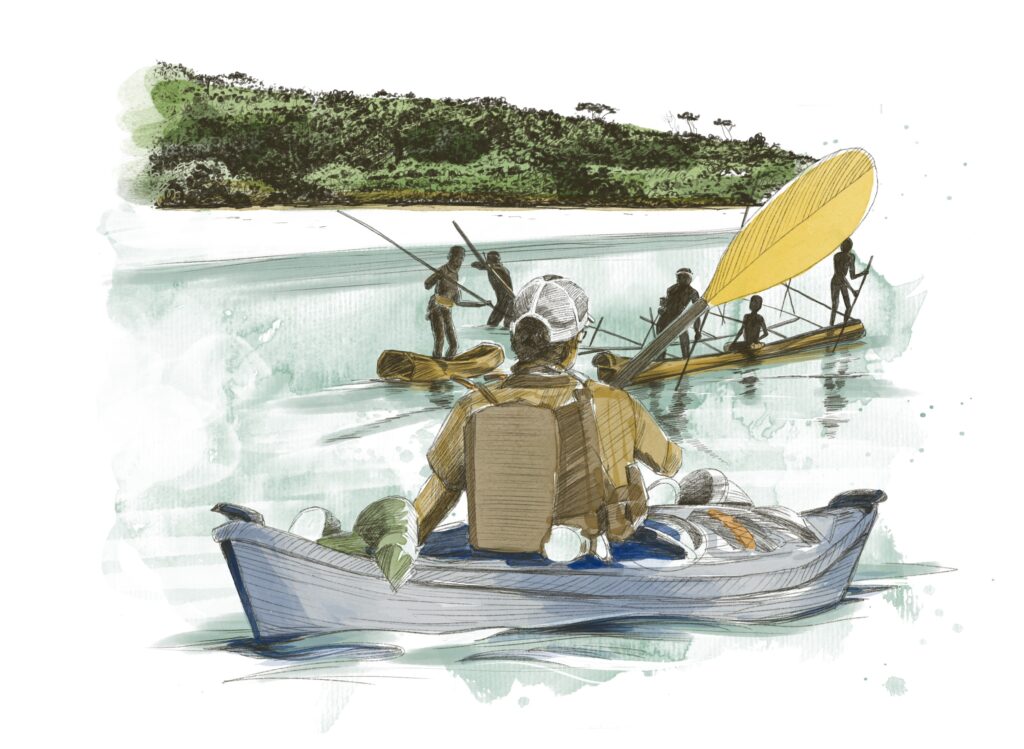
The next morning before dawn, John went ashore and buried two cases of supplies for his stay on the island. Later that morning, he kayaked along the shore, hoping to show his good intentions by delivering fish and other gifts to the islanders. “My name is John,” he called out. “I love you, and Jesus loves you.”
The first islanders to appear carried their bows with unstrung arrows. Later, when they strung arrows in their bows, John paddled out of range and back to the boat. He approached again that afternoon, delivering more gifts and getting close to an islander before a young Sentinelese launched an arrow that lodged firmly in the waterproof Bible he was carrying.
The page where the tip of the arrow stopped ends with the first two verses of Isaiah 65: “I was ready to be sought by those who did not ask for me; I was ready to be found by those who did not seek me. I said, ‘Here I am, here I am,’ to a nation that was not called by my name. I spread out my hands all the day to a rebellious people, who walk in a way that is not good, following their own devices.”
On that second contact attempt, John got out of his kayak hoping to appear less threatening. When he retreated from the island, he left the kayak, with his U.S. passport inside, and swam back to the fishing boat. After that eventful day, he poured out his heart in the pages of his journal, which the fishermen later delivered to Christian friends.
“The plan now is to rest and sleep on the boat and in the morning to drop me off by the cache and then I walk along the beach toward the same hut I’ve been giving gifts to. It’s weird — actually no, it’s natural:
I’m scared.

There, I said it. Also frustrated and uncertain — is it worth me going on foot to meet them? Now they have attached me to the gifts … Lord yet you will be close. If you want me to get actually shot or even killed with an arrow, then so be it. I think I could be more useful alive though, but to you, God, I give all the glory of whatever happens. I DON’T WANT to DIE! Would it be wiser to leave and let someone else continue? No. I don’t think so — I’m stuck here anyway without a passport and having been off the grid. I still could make it back to the U.S. somehow as it almost seems like certain death to stay here. Yet there is evidenced change in just two encounters in a single day. Will try again tomorrow.”
John’s journal also includes sociological and linguistic notes; he tried to learn as much as he could from each encounter with the Sentinelese.
Later that evening, John added another entry:
“Watching the sunset, and it’s beautiful — crying a bit. … Wondering if it’ll be the last sunset I see before being in the place where the sun never sets. Tearing up a little.
God, I don’t want to die. WHO WILL TAKE MY PLACE IF I DO? … Why did a little kid have to shoot me today? His high-pitched voice still lingers in my head. Father, forgive him and any of the people on this island who try to kill me, and especially forgive them if they succeed.
Lord strengthen me as I need Your strength and protection and guidance and all that You give and are. Whoever comes after me to take my place, whether it’s after tomorrow or another time, please give them a double anointing and bless them mightily.”
According to his notes, John planned for the fishermen to drop him ashore the next morning. He would then approach the tribesmen on foot, and the fishermen would pull back until the following day. John hoped he would seem less threatening without the boat waiting offshore. And he also hoped to protect the fishermen: “If it goes badly on foot, the fishermen won’t have to bear witness to my death,” he wrote.
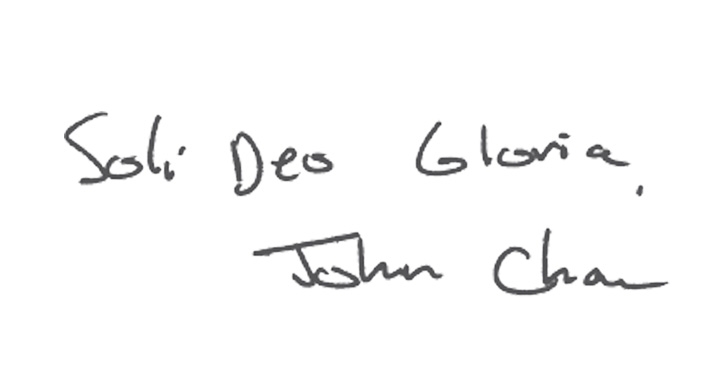
John closed most of his journal entries as well as letters to friends and family with the Latin phrase Soli Deo Gloria: “Glory to God Alone.”
The Beach
On Nov. 16, 2018, John went ashore on North Sentinel Island for the last time. When the fishermen returned the next day, according to the police report, they saw “a dead person being buried at the shore which from the silhouette of the body, clothing and circumstances appeared to be the body of John Allen Chau.”
Nothing is known about what happened between John’s arrival on the beach and his death. The young man who would later be ridiculed as a “colonizer” had approached the Sentinelese without a weapon — even after being shot at — clearly willing to give up his own life. John’s body was never recovered; he had requested that if killed, his body be left on the island.
Following his death, a storm of vitriol was unleashed on John, his family, All Nations and, at times, anyone who would dare to think of sharing the gospel with another human being. The fishermen who took John to the island were arrested, as were other Christians who had spoken with John in the Andaman Islands. Their trial began in November 2021.
The story of John the “adventure bro” quickly turned to John the misguided missionary, the colonizer, the thoughtless disease spreader. The mocking memes on social media and criticism in a variety of media came in waves. Some comedians even used the story of John’s murder in their acts.
More concerning was the criticism from Christians who attacked John’s perceived lack of preparation and insensitivity to the culture. Some even questioned whether the Great Commission might be outdated in 2018; perhaps, they posed, it doesn’t apply to tribes that have no contact with the outside world.
“I would say for me the only ongoing pain that I have about [John’s mission and death] is actually how Christianity as a whole treated John so poorly after he was so willing to give his life for Jesus,” said Pam Arlund of All Nations. “He was willing to give his life for a people group that he never actually got a chance to meet. … I wish that, I will call it Christendom, would have been kinder to him.”
Not the End of the Story
“I believe that the measure of success in the kingdom of God is obedience,” John said a few months before his death. “I want my life to reflect obedience to Christ and to live in obedience to Him. I think that Jesus is worth it. He’s worth everything.”
The final pages of John’s journal, which he left with the fishermen before being dropped off the last time, are notes to his family and a friend. The notes, like others written to friends in John’s last weeks, include a challenge for them to remain faithful to Christ: “I pray you will never love anything in this world more than you love Christ.”
John lived up to that challenge, loving Jesus Christ so much that he was willing to swim ashore that final time. His sacrifice, however, isn’t unique. John follows in the footsteps of faithful Christians throughout history, beginning with the martyrdom of all but one of the original 12 apostles.
In the 1800s, only one in four missionaries survived his or her first term in the Congo (From Jerusalem to Irian Jaya, by Ruth Tucker). In 1866, Robert Thomas died on a riverbank outside Pyongyang while trying to take the gospel to Korea. Five men were speared to death in 1956 while trying to share the love of Christ with “Auca” (now called Huaorani) tribesmen. A willingness to “die trying” has always been a requirement for taking the gospel to places it’s never been heard.
The end of John’s life on earth should not be viewed as the end of the whole story; we know how that story ends. In one of John’s last journal entries, he wrote, “The eternal lives of this tribe are at hand, and I can’t wait to see them around the throne of God worshiping in their own language, as Revelation 7:9–10 states.”
Every tribe, every people, every language, worshiping King Jesus together. John longed for the day when he could introduce his Sentinelese brothers and sisters to other members of the body of Christ.
Whoever goes next, whoever is willing to risk his or her life to see John’s hope realized, should know that John has prayed for them. “Whoever comes after me,” he wrote in a prayer on the last evening of his life, “whether it’s after tomorrow or another time, please give them a double anointing and bless them mightily.”
Perhaps in eternity, we will see John standing among the Sentinelese gathered around the throne, crying out in a loud voice with them, “Salvation belongs to our God!” Those who knew John well on earth will expect a toothy grin on his face, a twinkle in his eye and a thumb raised in his trademark “It’s all good” gesture.


 Guide
Guide